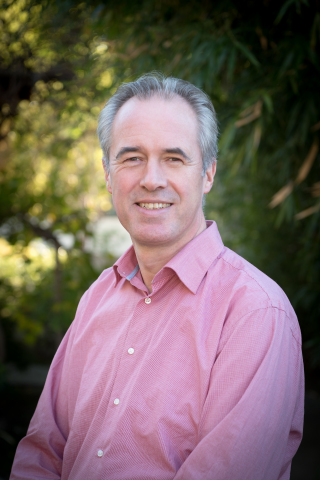City of Hope Now Enrolling Patients for Phase 1 Type 1 Diabetes Investigational Vaccine Trial
City of Hope Now Enrolling Patients for Phase 1 Type 1 Diabetes Investigational Vaccine Trial
The investigational vaccine is the first-of-its-kind for type 1 diabetes to be tested in the United States and showed positive results in an early study in Europe
DUARTE, Calif.--(BUSINESS WIRE)--A City of Hope Phase 1 trial featuring an investigational vaccine that uses a person’s own immune cells, a beta cell protein and vitamin D3 to potentially treat type 1 diabetes is now recruiting patients. The trial is part of The Wanek Family Project for Type 1 Diabetes at City of Hope, which seeks to find cures for the disease.
Known as the PIpepTolDC vaccine, the “inverse” vaccine, which was previously evaluated for safety and feasibility in a clinical trial in the Netherlands, will be tested for the first time in the United States. An inverse vaccine aims to stop certain specific immune responses rather than activate them, as is done by, for example, flu vaccines and COVID-19 vaccines currently being tested.
For the trial, the investigational vaccine will be developed using a patient's own dendritic cells, a type of immune cell. In a City of Hope laboratory, those cells will be cultured and loaded with vitamin D3 and a fragment of pro-insulin to help train the immune system to reduce inflammation. Patients will then receive their modified immune cells via two injections, one month apart.
“There is currently no approved immunotherapy for type 1 diabetes patients, and City of Hope aims to change that,” said Bart O. Roep, Ph.D., City of Hope’s Chan Soon-Shiong Shapiro Distinguished Chair in Diabetes and director of The Wanek Family Project. He also helped lead the clinical trial for the diabetes vaccine in the Netherlands. “Our trial aims to engage a person’s immune system, rather than suppress it, and to try to stop it from attacking the insulin-producing cells. The vaccine could also have the positive effect of preventing diabetic complications like blindness and neuropathy.”
“It is a very exciting time for type 1 diabetes as we move from just treating the symptoms to actually trying to stop the disease,” Roep added.
Although the clinical trial is now open and recruiting patients, due to the COVID-19 pandemic, patients won’t be able to receive the vaccine until the pandemic is under control. In the meantime, patients will be screened for trial eligibility.
The trial — part of the Diabetes & Metabolism Research Institute at City of Hope — is led by clinical principal investigator Ryotaro Nakamura, M.D., a City of Hope professor in the Department of Hematology & Hematopoietic Cell Transplantation, who has many years of experience working with cellular therapies such as bone marrow and stem cell transplants.
“This is a very exciting and novel immunotherapy approach to potentially treat type 1 diabetes, and one that we hope can also lead to future applications in other autoimmune diseases and graft-versus-host disease,” Nakamura said.
The trial is open to adults with type 1 diabetes between the ages of 18 and 45 who were diagnosed with type 1 diabetes in the last one to four years, when there are many more beta cells to be preserved and protected. Other eligibility and exclusion criteria for the trial can be found here.
In the Netherlands study, nine participants were monitored for six months after receiving the investigational vaccine. No signs of systemic immune suppression or major adverse reactions were seen. Furthermore, beta cell function and overall diabetic control remained stable, and all patients maintained healthy blood sugar levels after treatment.
These patients had been diagnosed with type 1 diabetes for as long as 10 years. Even though these patients no longer produced insulin, or much less than patients with a more recent diagnosis, the vaccine still showed some positive effect.
“In the future, this strategy could be tweaked to treat other autoimmune or inflammatory diseases such as arthritis, multiple sclerosis or psoriasis, as long as you know the driving trigger,” Roep said.
For the trial, City of Hope will also use a new type of conduit to deliver a treatment called microneedles, which are grouped together and applied like a transdermal patch, injecting the immune cells under the skin of patients rather than straight into the blood or muscle. This novel approach was used in the Netherlands study.
“This way, the modulated immune cells directly migrate to the relevant tissue, which is a great safety asset,” Roep said.
About City of Hope
City of Hope is an independent biomedical research and treatment center for cancer, diabetes and other life-threatening diseases. Founded in 1913, City of Hope is a leader in bone marrow transplantation and immunotherapy such as CAR T cell therapy. City of Hope’s translational research and personalized treatment protocols advance care throughout the world. Human synthetic insulin and numerous breakthrough cancer drugs are based on technology developed at the institution. A National Cancer Institute-designated comprehensive cancer center and a founding member of the National Comprehensive Cancer Network, City of Hope has been ranked among the nation’s “Best Hospitals” in cancer by U.S. News & World Report for 14 consecutive years. Its main campus is located near Los Angeles, with additional locations throughout Southern California. For more information about City of Hope, follow us on Facebook, Twitter, YouTube or Instagram.
Contacts
Letisia Marquez
626-476-7593
lemarquez@coh.org

